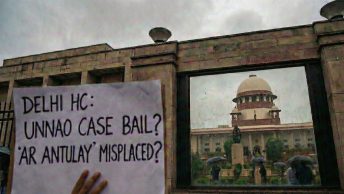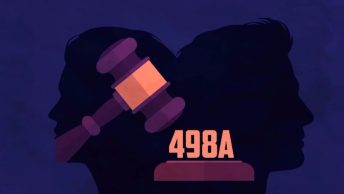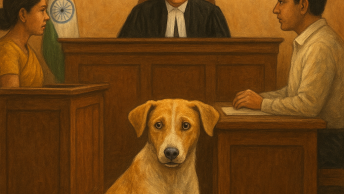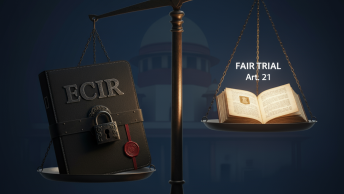There have been several questions regarding the simultaneous applicability of the Information Technology Act [“IT Act”] and the Indian Penal Code [“IPC”] due to considerable overlaps between the offences provided for in these statutes. The debates in this regard are centered around whether these two statutes can be invoked simultaneously, or whether one overrides the other, or whether the prosecuting authority has an option to decide which statute should be invoked to charge the accused. The position of law on simultaneous applicability was uncertain for a long time, right since the IT Act came into force in 2000.
Position of Law on Simultaneous Applicability
The position of law on this point has been settled by the Court through a series of recent judgments. In Sharat Babu Digumarti v. Govt. of NCT of Delhi [AIR 2017 SC 150], the Supreme Court held that when the actions of an accused fall within the scope of offences under both the IT Act and the IPC which have the same ingredients, a charge under the former makes a charge under the latter impermissible. The reasoning given was twofold – first, that the IT Act, being a special law, overrides the general law and second, that the IT Act contains a non-obstante provision under Section 81 which gives its provisions an overriding effect over any law in force. Accordingly, the Court held that that the test to determine obscenity under Section 67 IT Act [punishment for publishing obscene material in electronic form] was of an “identical nature” to the test under Section 292 IPC [obscenity]. Therefore, a discharge under Section 67 IT Act made a charge under Section 292 IPC impermissible.
In a subsequent case of Gagan Harish Sharma v. The State of Maharashtra [2019(3) Crimes 618(Bom.)], an accused was simultaneously charged under Sections 408 & 420 of the IPC [criminal breach of trust and cheating respectively], and Sections 65 & 66 of the IT Act [tampering with computer source code documents & computer related offences respectively]. Applying Sharat Babu, the Bombay High Court held that the ingredients of the concerned offences under the IPC and the IT Act were the same. Hence, a simultaneous charge under both statutes would amount to more than one prosecution and punishment for the same offence and therefore constitute “a brazen violation of protection against double jeopardy”. It also elaborated upon the reasoning of Sharat Babu, noting that Section 81 reflects the legislative intention that the IT Act’s special mechanism should prevail over the IPC. Hence, it held that once the IT Act is attracted, the offender “gets out of the net of the IPC”, and its invocation and application is “totally uncalled for”.
Through the above case law, the position on simultaneous applicability of the IT Act and the IPC is now clear. For actions attracting offences with similar ingredients under both the statutes, an accused can only be charged under the IT Act due to application of principles of lex specialis and double jeopardy.
Legal Soundness of the Position
Both Sharat Babu and Gagan Sharma have been appreciated for bringing clarity to the law and are hailed as legally sound. Additionally, their legal soundness is also substantiated by several other reasons.
First, as briefly touched upon in Gagan Sharma, legislative intention clearly points towards preferring the IT Act. This is because in addition to the non-obstante clause under Section 81, the 2008 Amendment to the Act is a clear indication that the legislature intends to make the IT Act a self-contained code on electronic offences, and reduce its reliance on the IPC. Specifically, the 2008 Amendment chose to add new offences similar to the IPC in the IT Act, instead of merely expanding the scope of the IPC. Further, it also added punishments for abetment [Section 84B], attempt [Section 84C] and bail provisions [Section 77B] under the IT Act in addition to expanding its compoundable-nature related provisions [Sections 63 and 77A]. Thus, Sharat Babu and Gagan Sharma are legally sound because they are in tandem with this legislative intention.
Secondly, it is important to note that the extent of punishments and other provisions are very different under the IPC and the IT Act. For instance, cheating under Section 420 of the IPC is non-bailable, compoundable only with the permission of the court and attracts a maximum punishment of seven years and fine. Comparatively, Sections 65 and 66 [which Gagan Sharma said had the same ingredients as Section 420 IPC] of the IT Act are bailable, compoundable and attract a maximum punishment of only three years. Hence, an interpretation which favours application of the IT Act is clearly in favour of the accused, and is therefore in tandem with the general criminal law principle of taking an interpretation that favours the accused in case of doubt. Further, had the Court given prosecutors the option to apply either the IT Act or the IPC, the Prosecutors would naturally favour applying the stricter IPC and the IT Act would then lose relevance as a piece as legislation. Thus, Sharat Babu and Gagan Sharma are legally sound because they take an interpretation in favour of the accused and prevent the IT Act from becoming irrelevant. However, despite this legal soundness, there is a glaring problem in this position of law, which will subsequently be dealt with in Part II.







Thanks for sharing this with us. its useful.
thanks for knowledge good infomation
How many sections are there in ipc?
https://www.letsdiskuss.com/how-many-sections-are-there-in-ipc
Your point of view caught my eye and was very interesting. Thanks. I have a question for you.
Your posts are so thought-provoking and often leave me pondering long after I have finished reading Keep challenging your readers to think outside the box